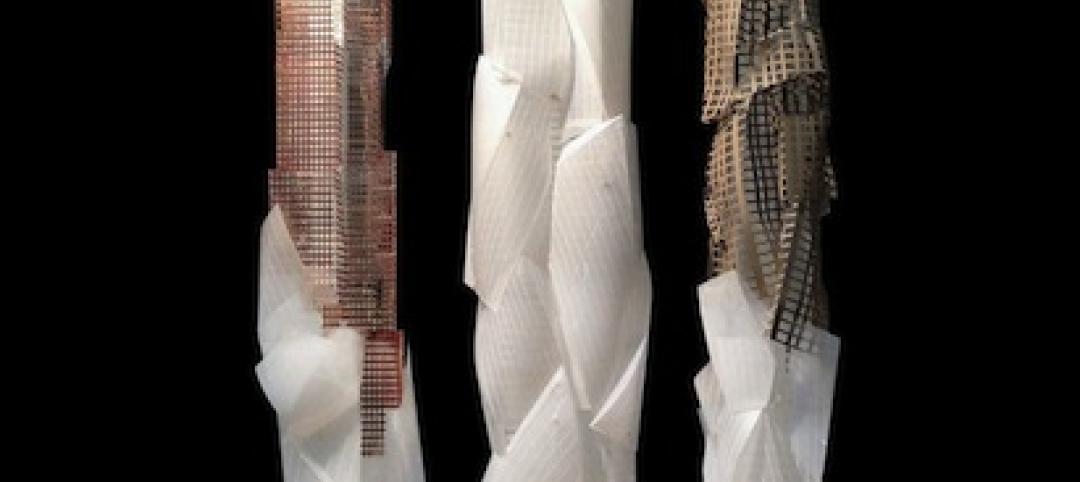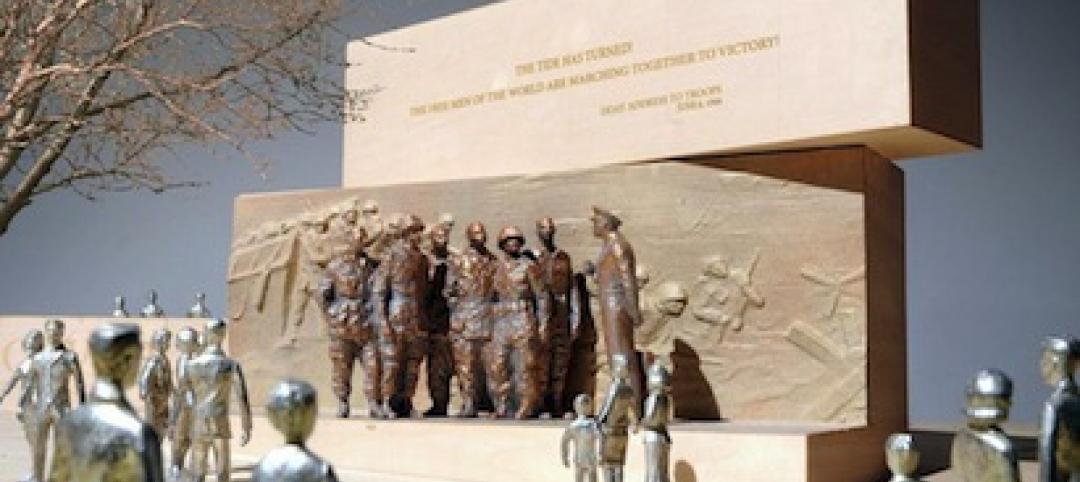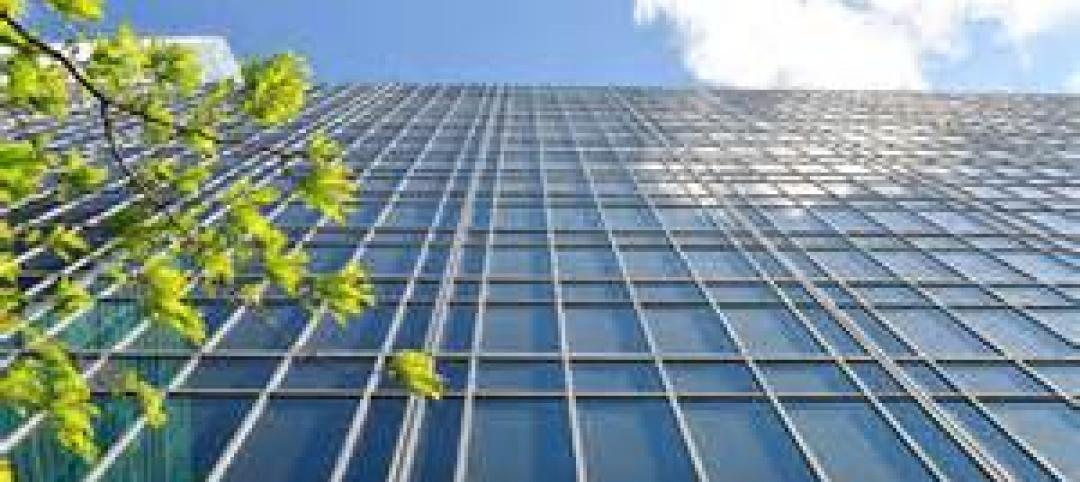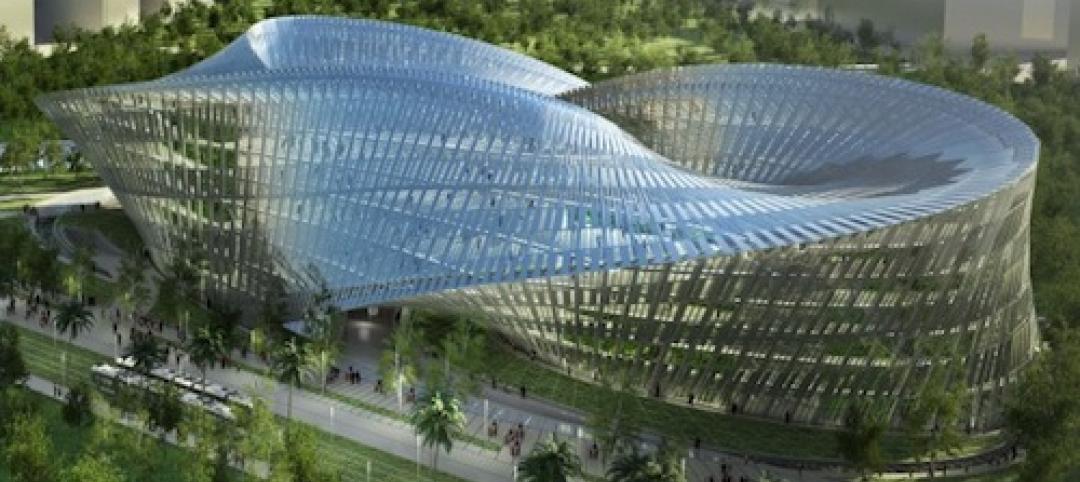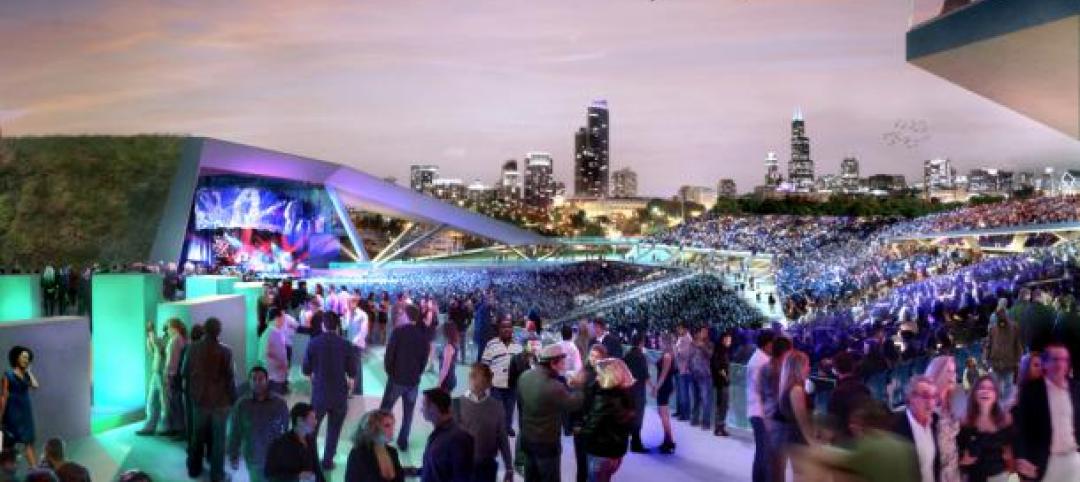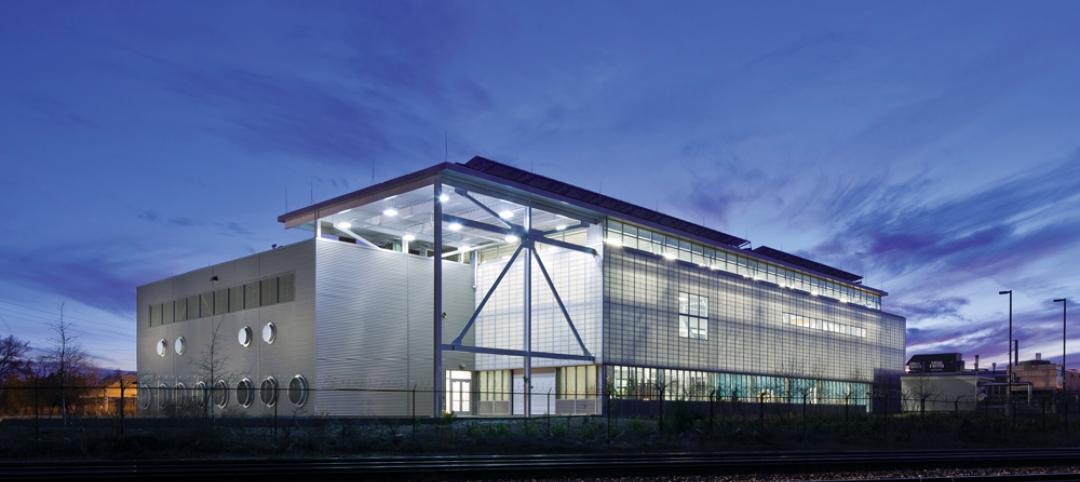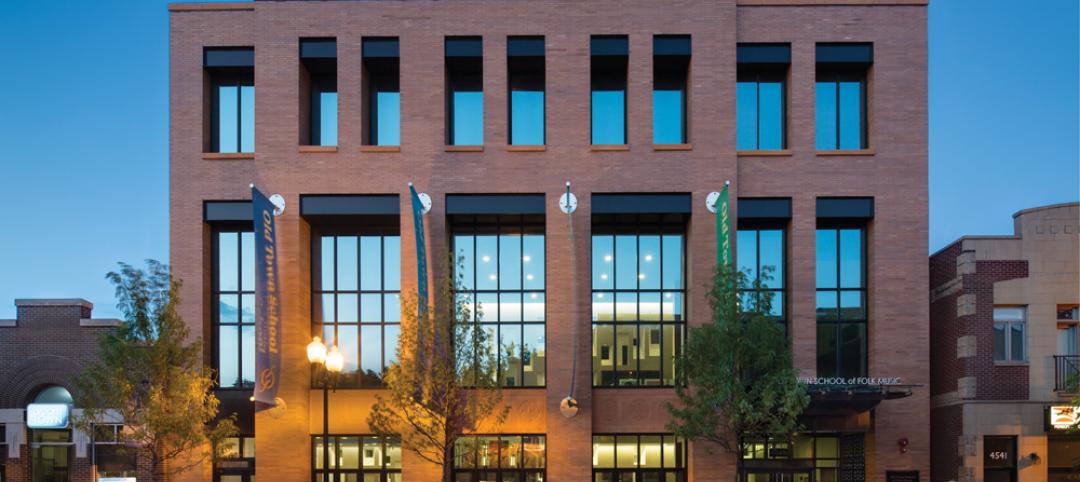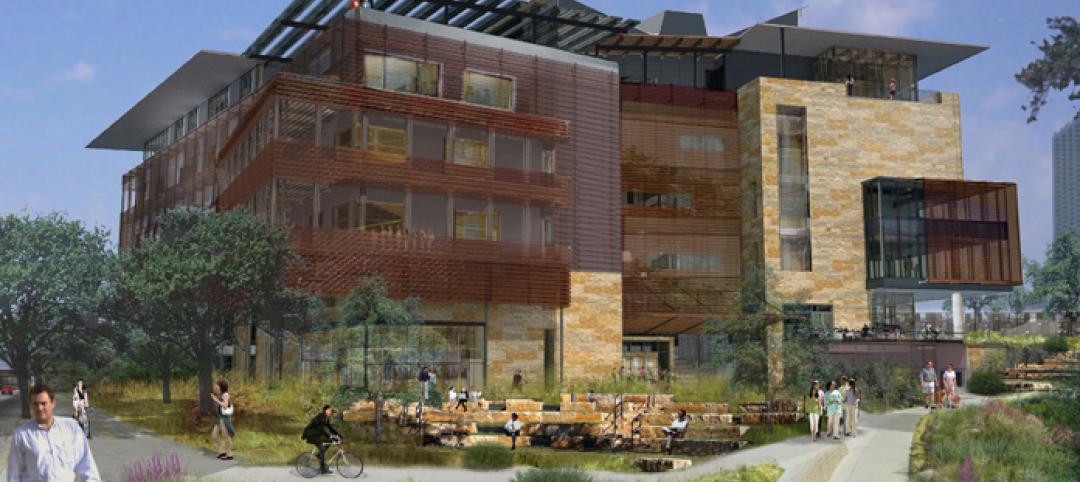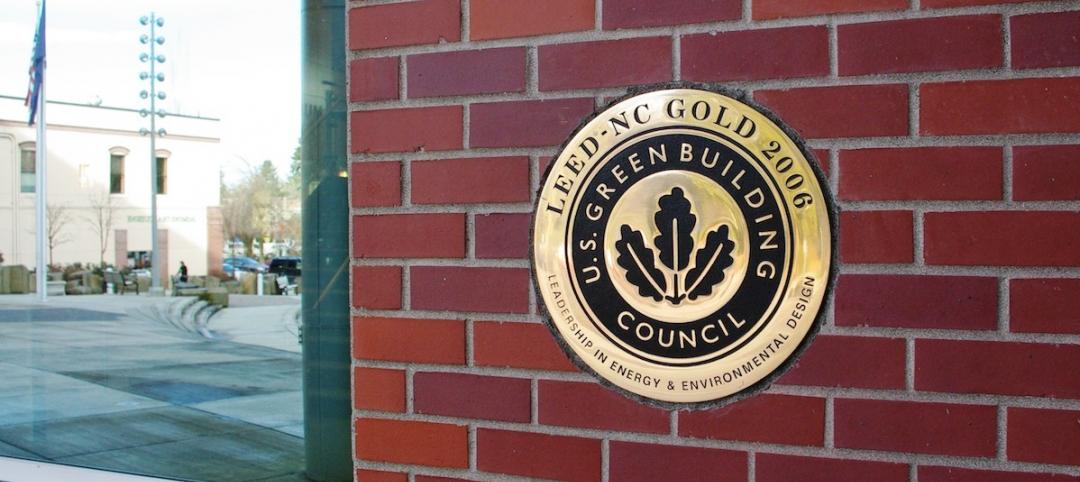
As part of a major revitalization of downtown Durham, N.C., locally based Capitol Broadcasting Company decided to transform the American Tobacco Company's derelict 16-acre industrial plant, which symbolized the city for more than a century, into a lively and attractive mixed-use development.
 |
| PHOTO: CAPITOL BROADCASTING COMPANY |
Although tearing down and rebuilding the property would have made more economic sense, the greater goal of building up downtown Durham and preserving history prevailed. Consequently, the city's largest ever historic preservation project got under way with a major environmental cleanup of the area.
Now, instead of blight, the bright new development features residential, office, restaurant, entertainment, and retail.
To preserve the historic nature of the original American Tobacco plant, only building materials that were available during the plant's lifetime (1874-1987) were used. Where new concrete had to be poured next to existing concrete, it was stressed and stained to match. Similarly, specialty brick masons were brought in to reconstruct old brickwork and craft new brick elements with the same designs and patterns found in the original buildings.
 |
| PHOTO: BOB HUGHES PHOTOGRAPHY |
One welcome feature is the incorporation of water throughout the project. Working with water feature consultant W.P. Law Inc., the Building Team, led by Atlanta architecture firm Smallwood, Reynolds, Stewart, Stewart & Associates, designed a scenic river, starting at the north end of the site and running south along the old loading docks and train tracks. Toward the center of the campus, the river splits into a beautiful, multi-level pool as it runs through a sprawling, green park.
Ultimately, the waters descend into the Fowler Courtyard via a refreshing waterfall, varying in height from three feet to 15 feet. A hidden reservoir then utilizes three 75-hp pumps to send water a quarter mile upstream, back to its headwaters.
Only trees and plants common to the community during the tobacco plant's operation were chosen for the landscaping. So as not to obstruct the project's architectural and scenic features, fewer and larger trees were selected.
 |
| Water features are significant additions to the American Tobacco Company’s grounds. The river runs along the lawn and under a bridge, past “ruins” constructed of old concrete slabs (left). The river terminates at the Fowler Courtyard, where it’s pumped back upstream to its headwaters. PHOTO: JEAN C. ALDY |
Another nature-friendly feature involved converting the old railroad tracks into bike trails for a “Rails to Trails” program.
Project guidelines stipulated that new buildings on the site had to conform to façade guidelines and could not obstruct views of the old buildings. The original water tower was preserved, while an amphitheater and stage were built below.
Local artists were commissioned to design art sculptures utilizing reclaimed machinery and materials from the old plant.
As is the case in many historic projects, no construction documents were found, so structural engineers from Morrison Engineers were on site to document existing structural conditions during demolition and reinforce structures as needed.
On the mechanical side, mechanical engineer Stantec Consulting largely kept the original plant's exposed mechanical and plumbing systems. The Building Team also went back in time to find ways to cool the buildings, utilizing the facility's extraordinarily thick walls and full basements to retain coolness.
At 1.5 million sf, the American Tobacco Project ranks as the largest redevelopment of a tobacco mill in North Carolina.
“It's a fantastic intervention in a decaying urban community,” said BD+C Renovation Awards judge Robert L. Selby, FAIA, Associate Director for Graduate Studies at the University of Illinois School of Architecture.
Related Stories
| Jun 25, 2013
Mirvish, Gehry revise plans for triad of Toronto towers
A trio of mixed-use towers planned for an urban redevelopment project in Toronto has been redesigned by planners David Mirvish and Frank Gehry. The plan was announced last October but has recently been substantially revised.
| Jun 25, 2013
DC commission approves Gehry's redesign for Eisenhower memorial
Frank Gehry's updated for a new Dwight D. Eisenhower memorial in Washington, D.C., has been approved by the Eisenhower Memorial Commission, reports the Washington Post. The commission voted unanimously to approve the $110 million project, which has been gestating for 14 years.
| Jun 17, 2013
DOE launches database on energy performance of 60,000 buildings
The Energy Department today launched a new Buildings Performance Database, the largest free, publicly available database of residential and commercial building energy performance information.
| Jun 14, 2013
First look: Callebaut's eye-popping Möbius building for Taichung arts center
French design firm Vincent Callebaut Architectures has released renderings of "Swallow's Nest," an entry in a design competition for a new cultural center, fine arts museum, and public library in Taichung City, Taiwan. The building, based on a Möbius ring, swirls around a central "Endless Patio."
| Jun 13, 2013
7 great places that represent excellence in environmental design
An adaptive reuse to create LEED Platinum offices, a park that honors veterans, and a grand national plaza are among the seven projects named winners of the 2013 Great Places Awards. The Environmental Design and Research Association recognize professional and scholarly excellence in environmental design, with special attention paid to the relationship between physical form and human activity or experience.
| Jun 12, 2013
5 building projects that put the 'team' in teamwork
The winners of the 2013 Building Team Awards show that great buildings cannot be built without the successful collaboration of the Building Team.
| Jun 11, 2013
Music/dance building supports sweet harmony [2013 Building Team Award winner]
A LEED Gold project enhances a busy Chicago neighborhood, meeting ambitious criteria for acoustical design and adaptability.
| Jun 7, 2013
First look: Austin breaks ground on 'light-filled' Central Library
The design scheme by Lake|Flato and Shepley Bulfinch incorporates reading "porches" and a light-filled, six-story atrium.
| Jun 5, 2013
USGBC: Free LEED certification for projects in new markets
In an effort to accelerate sustainable development around the world, the U.S. Green Building Council is offering free LEED certification to the first projects to certify in the 112 countries where LEED has yet to take root.
| Jun 3, 2013
Construction spending inches upward in April
The U.S. Census Bureau of the Department of Commerce announced today that construction spending during April 2013 was estimated at a seasonally adjusted annual rate of $860.8 billion, 0.4 percent above the revised March estimate of $857.7 billion.


